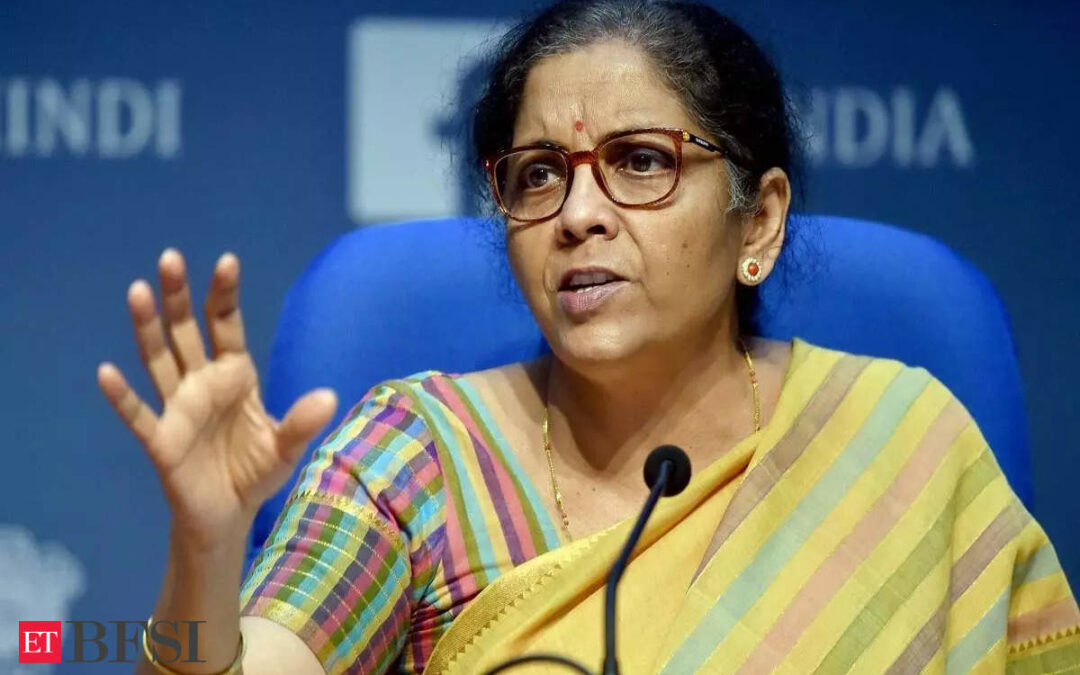Finance minister Nirmala Sitharaman said on Tuesday the Modi government intends to usher in next-generation structural reforms in factors of production–including land, labour, capital and digital public infrastructure–to spur inclusive growth, as she called on industry to be a key driver of the “developed India by 2047” goal.
Delivering a speech at a Ficci event in the national capital, the minister said the journey towards the developed India status is paved with opportunities that industry must cash in on.
Sitharaman invoked the indomitable entrepreneurial spirit of pre-independent India and urged industry to exhibit similar vigour, indicating structural reforms with far-reaching consequences by the Modi government if it gets elected again.
“You (industry) were with India in its freedom fighting moments. You had then built industry and capacity, despite the colonial pressures. It’s time for us to have economic independence in the true sense with this goal of Viksit Bharat (Developed India), and I’m sure industry will play its role,” Sitharaman said.
The minister dwelt on the reforms already undertaken by the Modi government, especially in digital public infrastructure, pitching it as another factor of production.
“You (industry) are also probably watching the situation, looking at the flow of (foreign) investment capital (into India). But I think it is time for the Indian industry to join in this game in a big way,” she said.
Future focus areas
Sitharaman flagged India’s economic potential in space and logistics and its aim to emerge as a global hub for artificial intelligence and research and development. The country’s green transition holds investment potential, especially in renewable energy and hydroelectric power.
She said the developed country dream, as indicated by Prime Minister Narendra Modi, is not meant to claim a high ground but to provide the future generations a better India that offers ample opportunities for its citizens to realise their potential and have ease of living.










